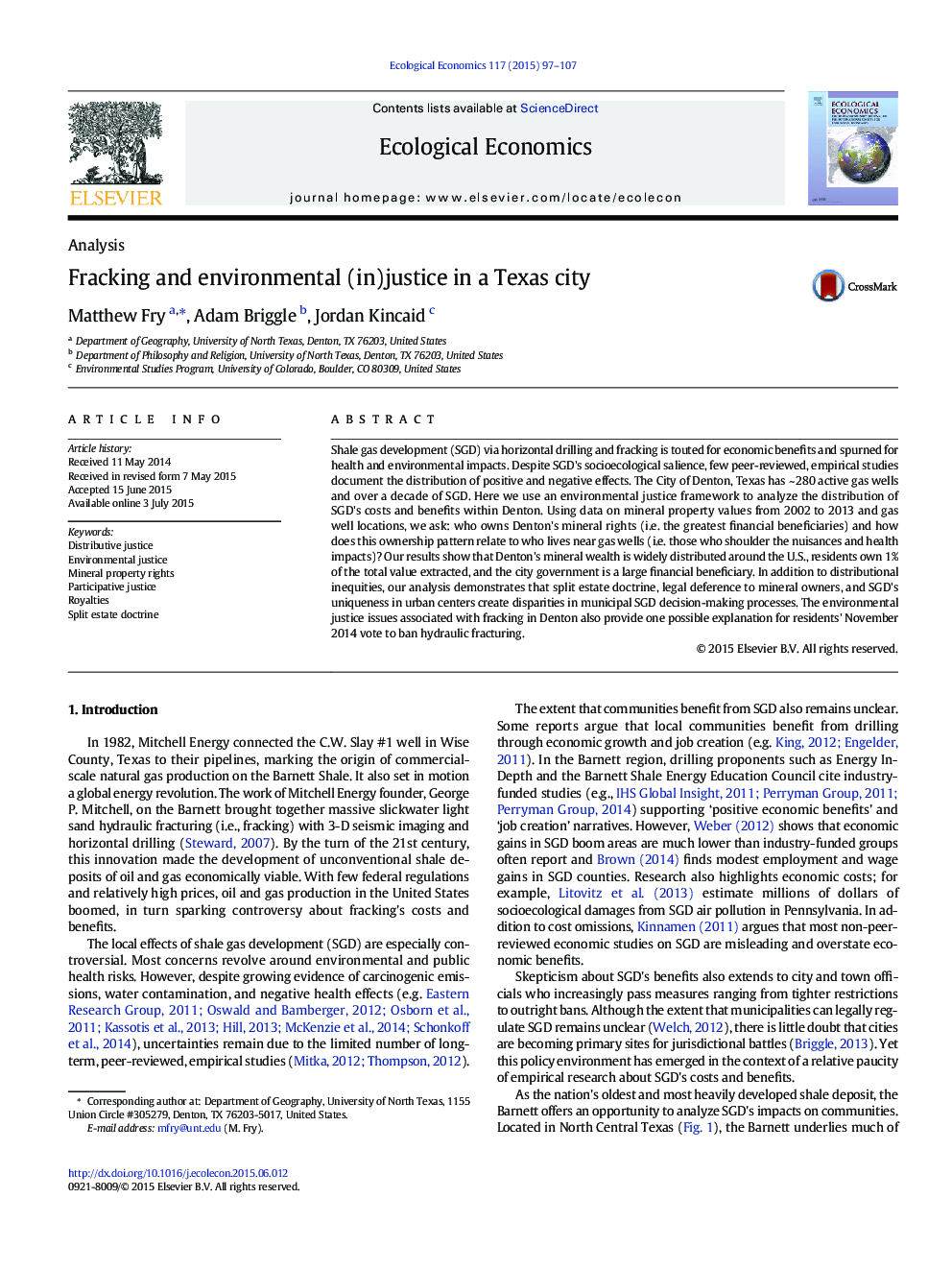| Article ID | Journal | Published Year | Pages | File Type |
|---|---|---|---|---|
| 5049281 | Ecological Economics | 2015 | 11 Pages |
Shale gas development (SGD) via horizontal drilling and fracking is touted for economic benefits and spurned for health and environmental impacts. Despite SGD's socioecological salience, few peer-reviewed, empirical studies document the distribution of positive and negative effects. The City of Denton, Texas has ~ 280 active gas wells and over a decade of SGD. Here we use an environmental justice framework to analyze the distribution of SGD's costs and benefits within Denton. Using data on mineral property values from 2002 to 2013 and gas well locations, we ask: who owns Denton's mineral rights (i.e. the greatest financial beneficiaries) and how does this ownership pattern relate to who lives near gas wells (i.e. those who shoulder the nuisances and health impacts)? Our results show that Denton's mineral wealth is widely distributed around the U.S., residents own 1% of the total value extracted, and the city government is a large financial beneficiary. In addition to distributional inequities, our analysis demonstrates that split estate doctrine, legal deference to mineral owners, and SGD's uniqueness in urban centers create disparities in municipal SGD decision-making processes. The environmental justice issues associated with fracking in Denton also provide one possible explanation for residents' November 2014 vote to ban hydraulic fracturing.
